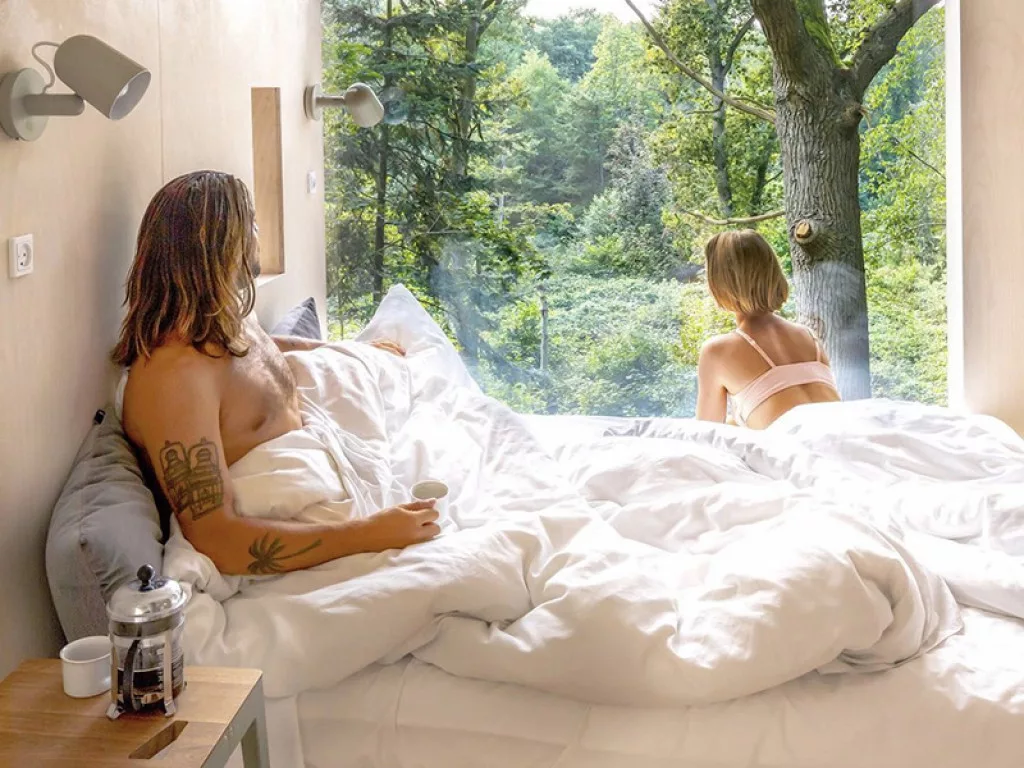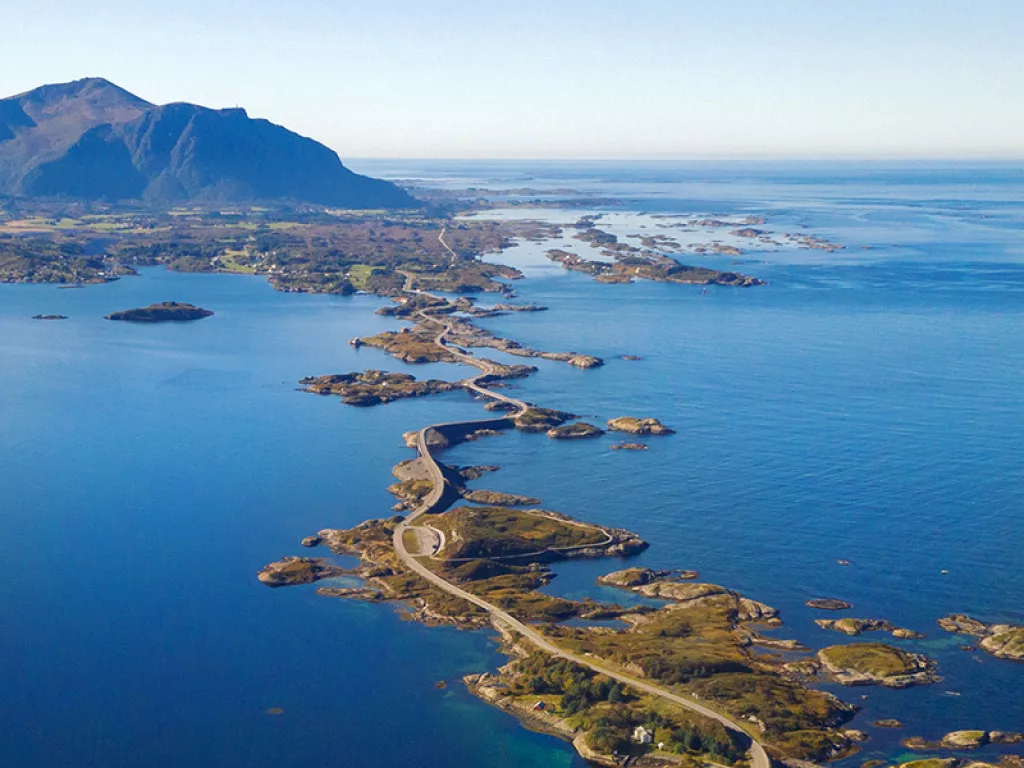Questioning the responsibility of influencer culture to encourage eco-friendly travel and drive positive change with Founder of TheTravelBook, Rasmus Lythcke.
THE ECO-FRIENDLY TRAVEL INFLUENCER
If Instagram, TikTok, and YouTube are anything to go by, the life of a travel influencer seems dreamworthy. To many, the idea of throwing in the nine-to-five to devote your time to the pursuit of your own wanderlust is undeniably seductive.
Rasmus Lythcke, Founder of TheTravelBook – a blog and social media platform with an Instagram following of over 30,000 people – was one such individual.
“I wanted to live this life that I saw everywhere on social media. The lifestyle of a travel blogger looked so beautiful,” he tells us.
After 10 years spent working in marketing and branding for the travel industry, Lythcke had begun to clock up some serious air miles. Commuting between his hometown of Copenhagen, his workplace in Zurich, and visiting his partner in New York, he estimates this amounted to roughly 100 flights a year.
“I was spending more time in airport lounges than in my own apartment!”
With his partner and co-Founder of TheTravelBook Karoline fully onboard, together the couple embarked on a major lifestyle change and cashed in on a one-way ticket to Southeast Asia to pursue the travel influencer dream.
“We were living as kings and queens, and it was too good to be true,” he recalls. “After a few months, we slowly started to build our social media following. With that, we recognised that we were developing a kind of responsibility towards people.”
It may be easy to produce an aesthetically friendly grid on Instagram, but what you don’t see is the environmental cost behind each picture, like the carbon emissions of the transport and flights involved just to capture one shot.
It is this idea of responsibility, as Lythcke, and indeed the world, began to awaken to an environmental and social conscience, that has come to define TheTravelBook’s success and content offering, as a platform entirely dedicated to sustainable travel and eco-friendly lifestyle tips.

For the globetrotting duo, this began with searching for accommodation and restaurants that would most benefit local communities, avoiding the model of tourism that is designed to cater to the whims of the Western world.
“There’s always white people sitting in westernised countries, earning from all these people running 100 kilometres an hour to fulfil the tourists’ needs,” Lythcke comments.
It also meant avoiding air travel as much as possible and becoming creative with more eco-friendly means of transportation. Ironically, ever since becoming a full-time travel influencer, Lythcke has only taken one flight in the past three-and-a-half years.
Four years since its inception, TheTravelBook has just been nominated as Denmark’s Best Travel Blog 2022. Copenhagen itself, where Rasmus and Karo are based, is widely hailed as the Green Capital of the World, with Denmark often ranking amongst the top positions in the Global Sustainability Index largely due to its innovative stance on waste management.
The whole idea behind TheTravelBook is to inspire people to travel without compromising on either quality, luxury, or enjoyable holiday experiences, whilst maintaining an eco-friendly lifestyle.
“Even going back to when we started, social media was entirely different. Then, if you were talking about sustainable tourism, that basically meant you had to walk around naked in a forest, eating leaves and not breathing before it was sustainable!
“But now, we have been doing this for years, and I’ve never once felt like I’ve had to compromise.”
CALLING FOR A CULTURE SHIFT
Social media influencers are a modern-day phenomenon with the potential to impact the entire tourism industry in shaping consumer behaviour.
Often with devoted, mass followings, Lythcke recognises that such individuals need to be mindful of the kind of tourism behaviour they are promoting. Having such an influential platform at your fingertips provides a powerful opportunity to become an ambassador for positive, ethical change.
“In my opinion, travel influencers have the biggest responsibility in making sure they’re not acting in the wrong ways,” he says.
He remains highly critical of influencer culture, as a world that can be built on artificial images and meaningless claims, particularly in an age where “sustainability has become the biggest buzzword of our time.”
As more and more people jump on to the trend of claiming sustainability, the true meaning of the word is diminishing, reducing its essence to nothing more than an empty hashtag to justify what in effect may represent the opposite of the word’s definition.
“It’s easy to see when someone is trying to force themselves into a topic that is outside of their comfort zone,” he says, laughing at how you will often see influencers dressed in a bikini made from recycled bottles claiming to be sustainable, having jumped on a long-haul flight for a short-term stay in Thailand at the expense of whatever hotel might be hosting them.
“It’s extremely difficult not to be dragged into it when so many things claim to be sustainable, but you have to follow this up with a lot of research to make sure that things genuinely are being done in an eco-friendly way. Transparency is key and ensures that you’re authentic and actually doing what you believe in by travelling sustainably.”

TRANSPARENT AND AUTHENTIC CONTENT
Behind every stunning photo or travel guide that TheTravelBook posts, are the invisible hours of research that have been put in to planning that trip or selecting that particular hotel or restaurant.
“Before I arrive at any destination, I will spend hours and hours doing research in advance. This way, when people arrive at our social media pages, the research has already been done for them,” Lythcke explains.
By so doing, reliable means of sustainable travel are placed easily within reach for a mass audience. As such, the role of the influencer becomes far more educational and informative, exceeding the traditional model of providing aesthetic, ‘like’-friendly content.
“I try to make it easier for everyone by giving them travel inspiration, where they don’t have to think about the research behind it.”
This research is often shared in the most transparent way through dedicated posts on the blog, where Lythcke might share a calculation of the carbon footprint behind an entire itinerary as accurately as possible.
For each trip, this revolves around the three essential pillars of travel – transport, accommodation, and gastronomy.
A slow-travelling couple, TheTravelBook limit themselves to no more than one flight per year. As official brand ambassadors for BMW, their preferred means of travel is electric vehicles (EVs), alongside rail travel.
Lythcke is also a huge advocate for bringing back the romance of the road trip, where the drive to get there is an integral part of the holiday itself.
“Transportation should become part of the journey where it’s not just about being in the car or on the train. Change your mindset to be glad that you’re able to discover a lot more than you would if you were just going from airport to airport.
“I thought that not travelling in aeroplanes twice a year would kill me. But if I’m able to make this change, people who are going on regular holidays maybe just twice a year can do the same.”
In terms of accommodation, Lythcke recommends researching options that have been vetted by reliable sources for their sustainability credentials, such as Green Key International – the leading standard for excellence in the field of environmental responsibility and sustainable operations within the tourism industry.
“If you also want to support sustainable tourism, book directly through the owner rather than through huge booking chains like Booking.com. This removes all the fees that you’d be giving to a larger booking group – which is likely to be a company that doesn’t need any more money!
“Even if you do find a price that’s more competitive on a site like that, it’s always worth discussing with the owner directly to see if they would be willing to match it. Support the hotel owners themselves as best as you can.”
This ties into the third essential pillar of gastronomy, and how what we consume can impact the local economic footprint, for example by choosing restaurants and eateries that prioritise seasonal and locally produced products.
Travellers should feel confident to ask for recommendations to eat where the locals eat, rather than opting for the obvious tourist restaurants which rely on international ingredients regardless of seasonality.
“Eating in local spots doesn’t just benefit the restaurant, it also benefits the local farmers behind the produce, or the fishermen who bring in that catch every morning. Go for the locally, freshly caught fish and support whatever local producers you can.”
Next up, TheTravelBook will be hitting the road (in an EV, naturally) through Sweden and on to the Fjords of Norway, documenting their travels as they go and continuing to act as ambassadors for a more ethical, mindful lifestyle.
“The important part all along, is that we still want to inspire people to travel.”
Visit @thetravelbook or TheTravelBook to find out more.





















